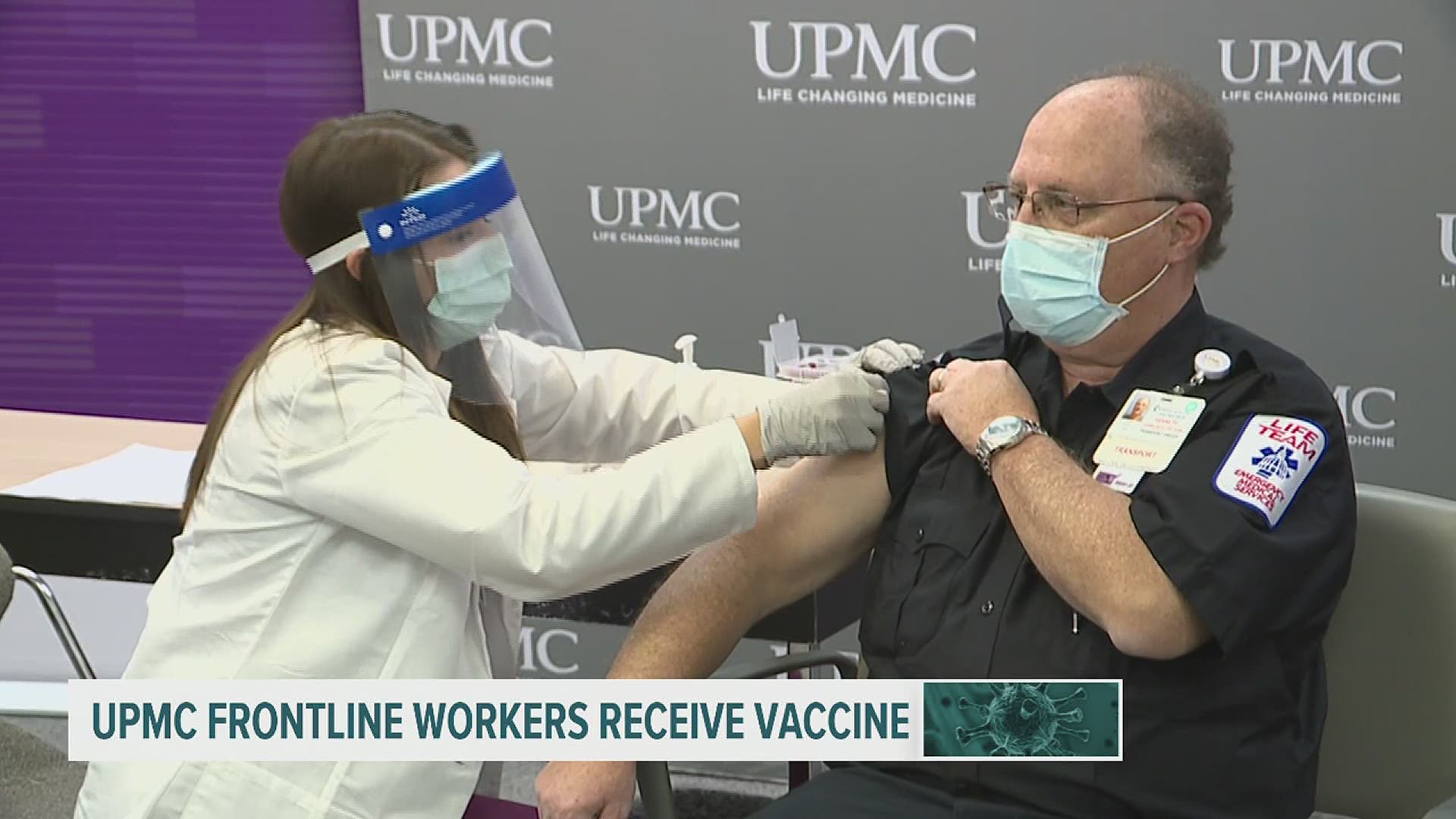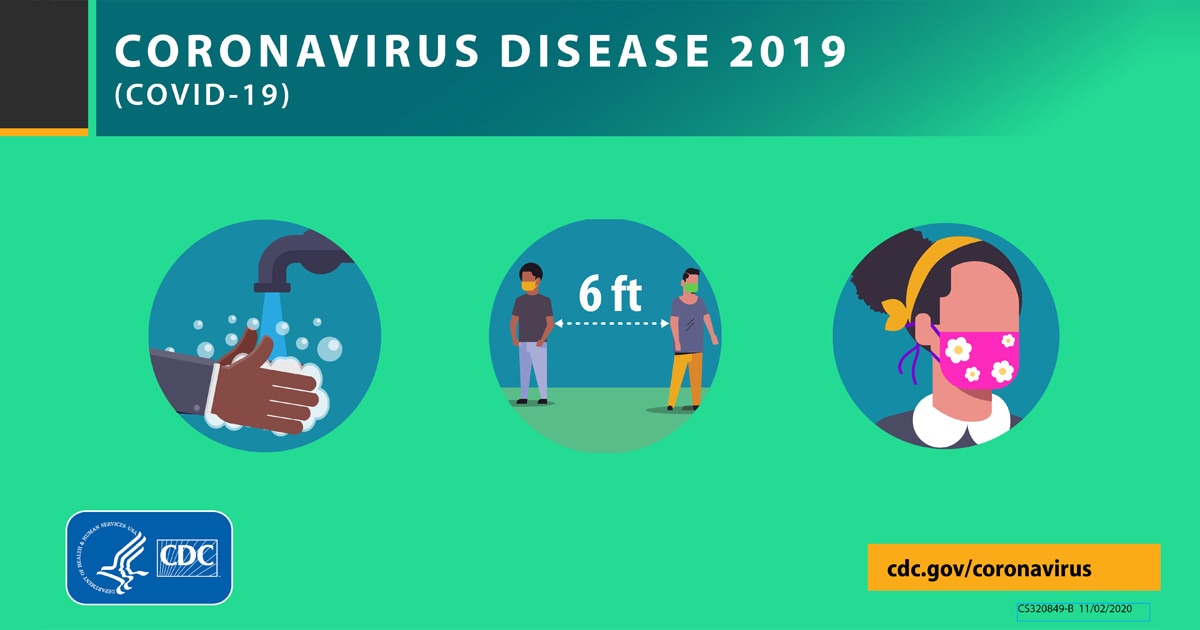HARRISBURG, Pa. — A historic moment captured on camera in Dauphin County today: Frontline workers with UPMC Pinnacle in Harrisburg received their first dose of the Pfizer COVID-19 vaccine.
With a deep breath, Mark Misczenski, a nurse in the emergency department at the hospital received his first dose of the vaccine.
It took only a few seconds for the shot to be administered.
"What we've tried to do is get people who are on the frontlines of COVID-care. The term we use is COVID-facing units," explained Dr. John Goldman, the Vice President of Medical Affairs and an infectious disease specialist. "We'll be trying to vaccinate everyone in those units -- doctors, nurses, transport people, anyone who comes into contact with COVID patients."
After Misczenski, four more frontline workers received theirs, including Ken Bittner.
"Ken works as a medical transporter for our community life team EMS," said Dr. Goldman. "He is a retired police officer, and he donated a kidney to his sister so he is at high risk of COVID-19."
"It didn't hurt at all. I didn't even feel it going in," said Bittner.
Dr. Goldman says the main side effect people could experience is a fever the next day, but these workers will be tracked for a time after that.
"We will obviously be monitoring for any more rare side effects. Anytime you have a new vaccine, you find new side effects after it is released," added the doctor.
So long as the workers do not get any side effects they can go back to work.
"I am going back to work right after this, and I had the vaccine today," laughed Dr. Goldman. "The only way you would not go to work is if you were ill, you have fever or symptoms."
Dr. Goldman says it could take about a week after people receive their second dose of the vaccine before it prevents COVID-19.
He believes vaccination is much safer than herd immunity.
"There are typically over 200,000 new cases of COVID-19 daily and typically 2-3,000 deaths every day," he explained. "There is clearly a much higher risk from the virus, than from the vaccine."
Each of UPMC's 7 hospitals have received doses of the vaccine. They plan to administer the vaccines, including a second shot, to as many employees as they can in the next six weeks, including those who are not healthcare professionals. Dr. Goldman says that is a much faster timeline than previous vaccines.
"I can tell you it's a tremendous sense of relief for all of us, and I think, for most of us, it's a sense of relief to our families that we're not going to get sick or get them sick," said Dr. Goldman.
Dr. Goldman never thought the vaccine would arrive so soon. He says he sees it as the light at the end of a very long tunnel.
You can read more about how the COVID-19 vaccine works on the CDC's website.


